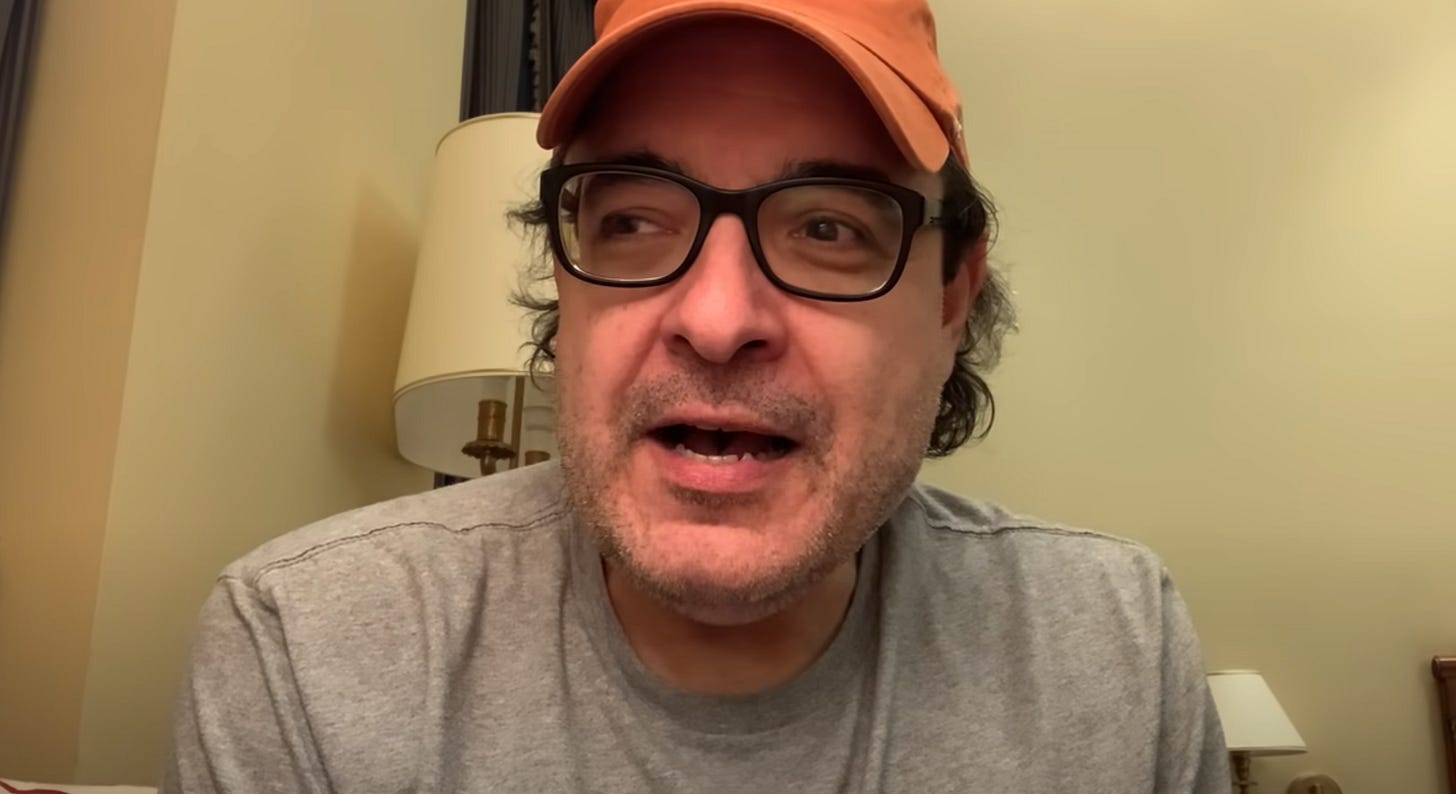American-Funded Ukraine Media Distorts American Citizen's Death
The U.S. government funds an elaborate array of Ukrainian media to combat Russian disinformation. The anti-disinfo groups, however, are denying Gonzalo Lira's death.
Gonzalo Lira was a gadfly American blogger prone to provocation. The self-styled men’s rights dating coach-turned-writer moved to Ukraine over a decade ago and was known to post screeds that often hinged on conspiracy theories. He was an adamant opponent of the Zelensky government, which he called “evil.”
Lira’s inflammatory posts led directly to his imprisonment. Last year, the Security Service of Ukraine detained Lira over a slew of speech-related criminal charges, including claims that he “justified Russian aggression.” He was released, then detained again, and died while under detention on the evening of January 11th.
The circumstances that led to his death and his treatment in Ukraine’s prison system are hotly debated. Lira claimed he was tortured and denied needed medical treatment, while Ukrainian officials have argued that he was in good health.
But Lira died in Ukrainian custody.
That much isn’t disputed—unless you’re reading coverage of the scandal from a network of Ukrainian online news and fact-checking websites.
The New Voice of Ukraine was one of the first Ukrainian outlets to report on Lira's death but dismissed the news as unverified and potential Russian propaganda.
Later that month, on January 31st, long after the State Department had confirmed Lira’s death, the fact-checking website VoxUkraine, continued to present Lira’s death with extreme suspicion, falsely reporting that “the information that the blogger died has not yet been confirmed by either Ukraine or the United States.”
In February, Detector Media, another Ukrainian news site that identifies as a media watchdog, similarly claimed in multiple posts that the American government had not confirmed Lira’s death. The outlet incorrectly wrote that Lira’s death had only been reported by pro-Russian sources seeking to tarnish Ukraine’s image. “Propagandists spread such fakes to discredit Ukraine,” Detector Media retorted, dismissing news outlets that had covered the writer’s death.
The wave of Ukrainian falsehoods surrounding Lira’s death spotlights an uncomfortable reality for aid to Ukraine – beyond the irony of self-proclaimed anti-disinformation groups spreading disinformation. The foreign confusion published about an American citizen’s death under murky circumstances was also footed in part by the American taxpayer.



